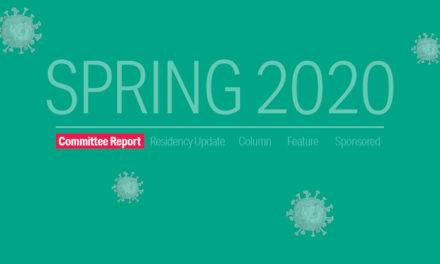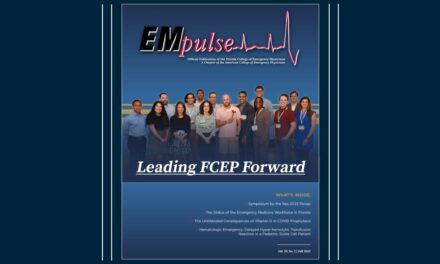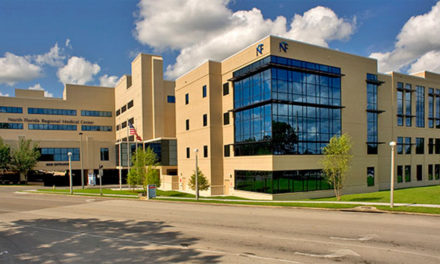Winter 2020: EMS/Trauma Report
Cold and flu season is upon us, and I want to bring to attention to appropriate BSI and PPE. “BSI scene safety” is not just a magical phrase we say to pass an EMS scenario; these are highly important actions for both our patients and ourselves. All too often I witness providers donning mask and gloves for interactions with possibly infectious patients, who then use those same gloves to grab their pens, doors, stethoscopes, etc., creating a whole new group of fomites (objects likely to transfer infection to others). When we don’t pay attention to what we do next with potentially contaminated equipment, it puts everyone at risk.
To demonstrate this process, spray an object (like a pen or stethoscope) with fluorescent dye and see how far it spreads. UV light will reveal the cross contamination of your equipment and give your team a great visual to help them remember proper BSI and PPE usage. Remind your team how simple actions—such as uncovered coughs or sneezes, touching their faces, not fully cleaning our equipment, or not allowing appropriate time to dry—can truly affect our care, especially of those at highest risk (young, elderly or immunosuppressed). For a fun visualization of this, watch the Scrubs Clip on Youtube entitled, “How diseases spread.”
Updates from the EMS Advisory Constituent Meetings in October
Hepatitis A Outbreak and First Responders:
Earlier this year, state Surgeon General Scott Rivkees encouraged EMS providers to vaccinate individuals at high-risk of contracting Hepatitis A through paramedic programs. Hepatitis A outbreak sample protocols, training, checklists and MOUs have been developed by the state to assist local county health departments in implementing this recommendation. A question for further consideration is, should a paramedic’s scope of practice be expanded to include administring vaccinations during other pandemics and mass events, such as disaster sheltering?
Additionally, Florida Department of Health has issued a public health emergency declaration urging first responders and those who work with homeless individuals or IV drug users outside of healthcare settings to get vaccinated because they are now considered at-risk populations for contracting Hep A.
Resuscitation and CQI:
The Medical Care Committee announced that they have surpassed all target state benchmarks for their committee. They will now be focusing on post-resuscitation care initiatives and continuous quality improvement (CQI).
A committee will develop post-resuscitation care initiatives that focus on moving from ROSC to CPC 1 2 rates. Additionally, in 2019, five Resuscitation Academies were hosted across the state. This free program focuses on ‘training the trainer’ with a goal of improving resuscitation outcomes. Five more academies are planned for this fiscal year.
Florida won a $750,000 multi-year grant—the Florida F.A.I.R. (FEASIBLE, ACTIONABLE, IMPACTFUL, RELEVANT)—to develop meaningful EMS quality measures. A goal is to use these measures for state inspections to help improve local performance.
Additional Items:
Dr. John McPherson provided an update on the Region V Trauma Agency Plan. They are currently focusing on developing consistent EMS protocols throughout the region on pediatric care, TXA, spinal immobilization and elderly patients with head trauma using anticoagulants.
Hurricane Dorian relief efforts revealed some gaps in efficiency that need to be addressed. A database that tracks volunteers and types of donations was discussed at the FAEMSMD meeting.
Finally, the new Stroke-Triage Assessment Form, which was presented at the July EMSAC meeting, was approved at the October 24 meeting. ■
CLINCON
The premier clinical conference for pre-hospital providers
This article is part of the following sections:






